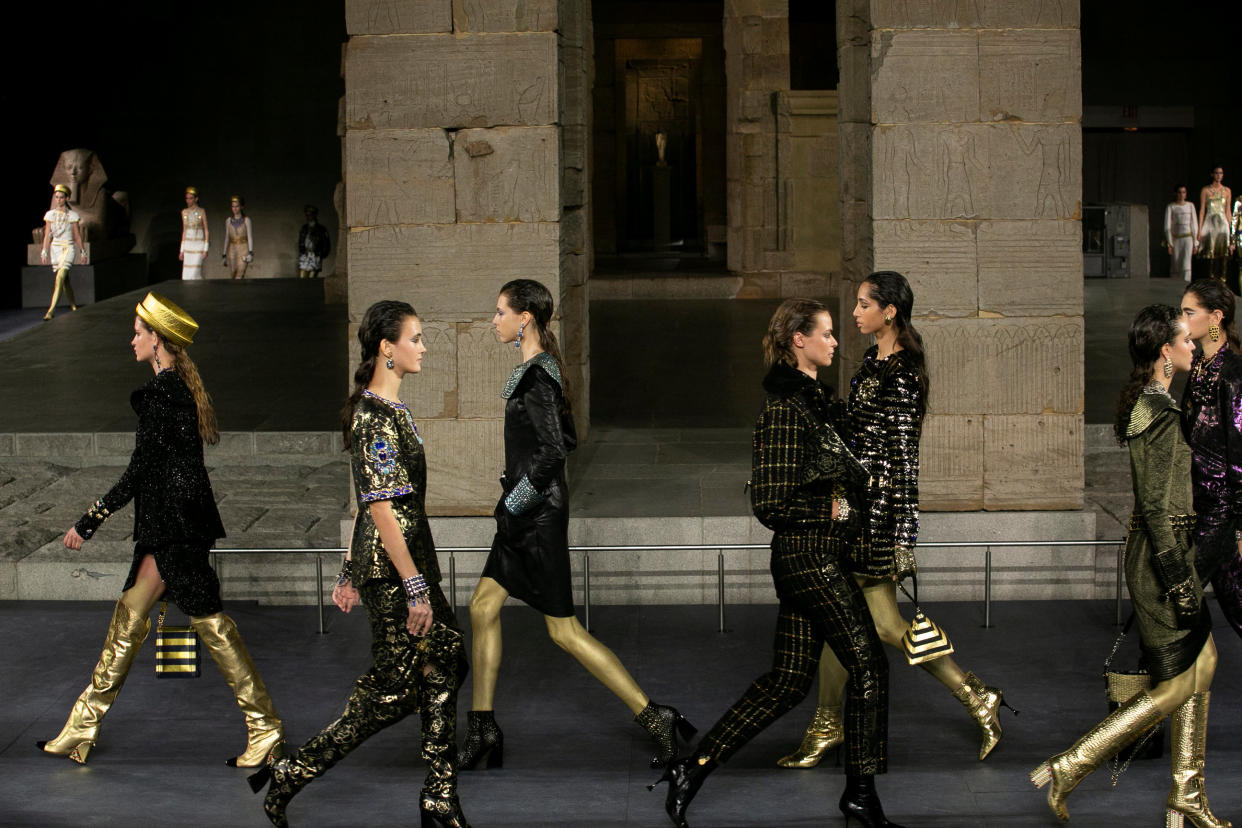The industries that thrive on discrimination

The discrimination women face at work comes in many different forms. Studies have shown women are far more likely than men to be judged at work because of their size, with many significantly underpaid or overlooked simply because they are overweight.
In recent years, researchers have begun to dig deeper into discrimination based on appearance and it’s detrimental impact on women at work. But there are some professions in which discrimination, particularly based on appearance, still prevails.
One of the key culprits is the fashion industry. Despite the issue of body diversity being brought up time and time again by the likes of Ashley Graham, the industry continues to be dominated by thin women. Of the 52 models featured in the Victoria’s Secret’s 2017 New York show, not a single one was plus-size. None of the models announced for this year’s show are plus-size either.
READ MORE: How women, not men, face discrimination at work for being overweight
According to Fashion Spot, runways in autumn 2018 saw the first regression in plus-size castings since 2016, with just 30 plus-size models across London, New York, Paris and Milan.
Perhaps most importantly, this lack of body diversity isn’t just felt in the fashion industry. It sends a message that only thin people can be fashionable, or wear nice clothes – a message which is felt on the high street too, as shops like Topshop, Zara and Urban Outfitters don’t cater for those above a size 18.
Some progress has been made, but it’s not enough. Models like Tess Holliday, who appeared on the front cover of Cosmopolitan, are in the minority and still face criticism and abuse for their size.
And it’s not just about weight, either. Research by Fashion Spot showed that in 2016, 78.2% of the models who appeared in spring adverts were white. Only 8.3% of the models were black, 4% were Asian and only 3.8% were Hispanic.
In August, journalist Lindsay Peoples Wagner spoke to more than 100 black people in the fashion industry for an article in the New York Times, all of whom shared stories of being marginalised and discriminated against.
The film industry also has a long, uncomfortable history of fat-shaming, which continues to this day. It is usually thin women who are cast in mainstream roles in Hollywood films, with many actors told to lose weight. Women who are of average or who plus-size, may be pigeon-holed into roles defined by their weight.
In 2016, the late Carrie Fisher spoke out about being asked to lose weight before the making of the very first Star Wars film in 1977. Last year, Jennifer Lawrence revealed she was forced to do a humiliating naked line-up with other women.
READ MORE: Why ‘hepeating’ prevents women from moving up the career ladder
“When I was much younger and starting out, I was told by producers of a film to lose 15 pounds in two weeks,” Lawrence said at Elle’s Women in Hollywood event, revealing that another actress before her had been fired for not losing the weight fast enough.
Women of colour are still marginalised in Hollywood, despite the discourse around diversity in film. A report by the University of Southern California’s Annenberg Inclusion Initiative released earlier this year found that in the 100 top movies of 2017, 29.3% of characters were from underrepresented racial/ethnic groups, 2.5% were characters with disabilities and less than 1% of all characters were from the LGBT community.
In addition, female characters were more than twice as likely as male characters to be shown in sexually revealing clothing, partially naked or referenced as attractive.
So why do some industries get away with such a lack of diversity? One argument, perhaps, is that it’s easy to discriminate with impunity when it comes to arbitrary requirements for weight, height or looks – any underlying bias, whether it’s sexism or racism, is masked. What do you say when you’re simply told you don’t have the “right look” – whatever that means?

